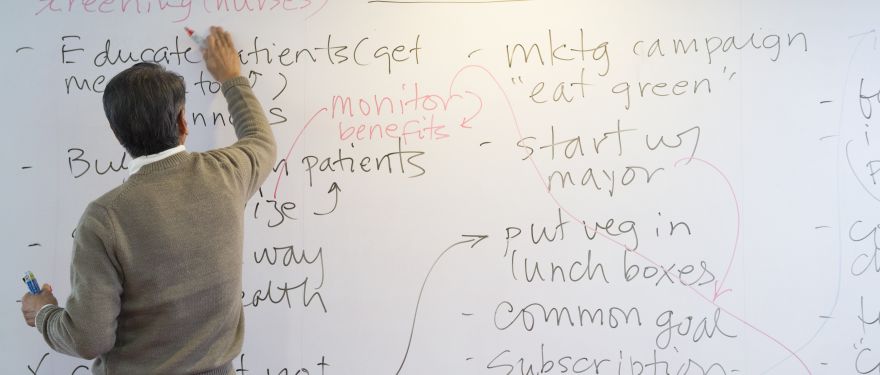An IFC (Immersive Field Course) is a class for second year students where the vast majority of content consists of an on-the-ground assignment to learn about and advise on real problems. I enrolled in an IFC focused on building cities because I am deeply interested in innovation within the public sector and this was a chance to dive deep into challenges and opportunities facing the governments of Lima and Buenos Aires (with implications for cities across the world as well).
The experience was similar to FIELD 2 in the RC year in that we had small teams working with specific in-country partners in a relatively short timeframe. However, the IFC had more of a cohort experience in that all of the teams, although working with different clients, had significant overlap in the problems we were working on.
For example, my team was working on transportation and its influence on civic opinion of the local government. We were the only team working on this specific problem but we learned a lot from the other teams working on hard transit improvement options and teams working more broadly on economic development. So there was a high degree of idea sharing and spillover across teams.
During the IFC, my team explored how a city's transportation infrastructure affected its citizens' opinions of government. For example, does having a two hour commute due to traffic dramatically lower citizens' perceptions of the government's competence? In Lima this is an enormous challenge as growth has overwhelmed existing transit options and so the city is aggressively trying to create new routes and eliminate some of the black market options that are tremendously unsafe. In Buenos Aires, the city has implemented a very successful series of reforms involving buses and bikes so we wanted to learn from them some best practices.
The biggest challenge was to recognize and fully deliver on the value that we brought to the partner. Our partners knew the challenges inside and out and were fully committed to bold, innovative reforms, so we had to work hard as a team to pool our experiences and ideas to put forth options that were novel and feasible. The biggest reward was building real connections with our partners. We had a great focus group in Lima, for example, that was a fantastic team-building exercise with our partner as well. Similarly, in Buenos Aires our partners took us on a bike tour of the city to show us the reforms they had implemented. Those experiences were the most rewarding.
I would strongly recommend IFCs to prospective students. I would suggest that people focus on building relationships with their partners and prioritize a concerted effort to understand their perspective. Getting out into the city and walking or biking or taking the bus with the partner is a great way to get a feel for how they see the challenges facing their city and it will help you be able to generate ideas that address the problems as experienced by your partners.

